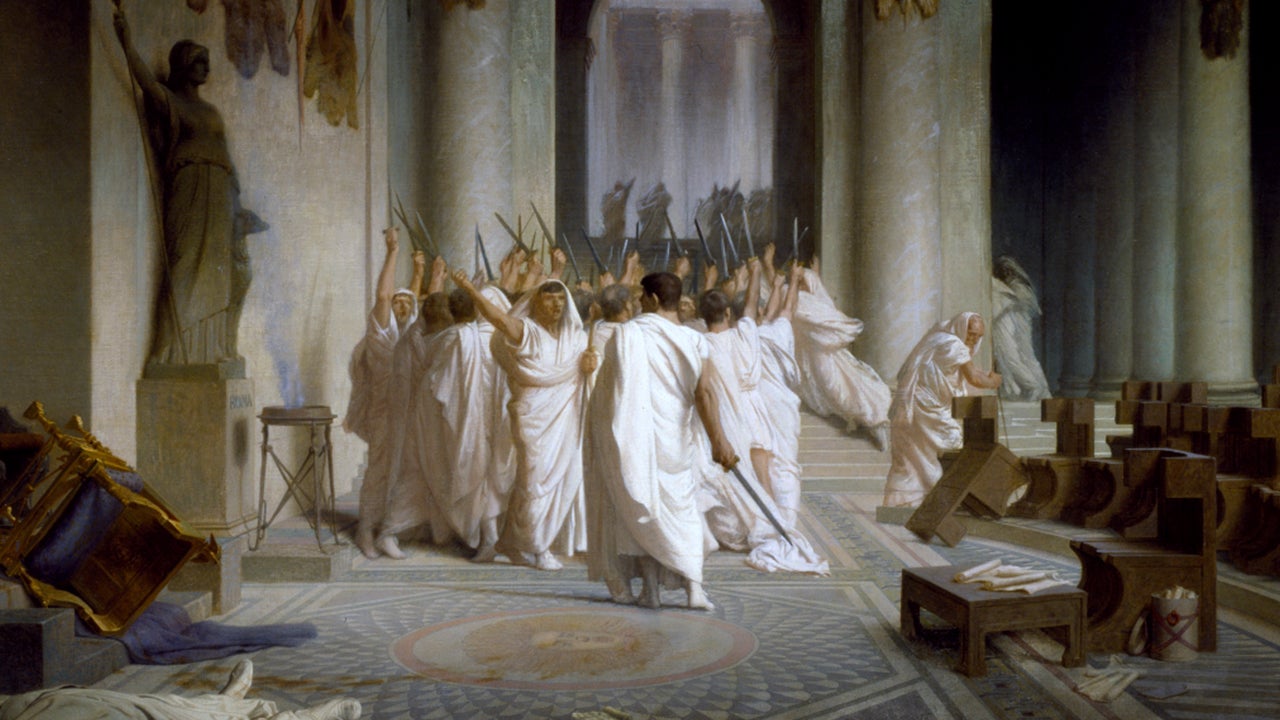
History
The Rise and Fall of the Roman Republic
12 lessons
7h total length
Create Your Account to Get Instant Access to “The Rise and Fall of the Roman Republic”
Discover the Remarkable Story of the Roman Republic
Lessons in this course

14:26
lesson 1
The Importance of Rome
Academics today are ignoring and wiping away our civilization’s history—a destructive act that robs us of the source of great wisdom. The proper study of ancient Rome reveals profound lessons in human achievement—especially in politics and military command.

20:08
lesson 2
The Ancient World Before Rome
In the sixth-century BC, Rome did not appear well-positioned to dominate the Mediterranean. Rome’s rapid rise from a small village in the middle of the Italian Peninsula is particularly impressive when one considers the geography of the region and the primary powers of the ancient world.

31:24
lesson 3
The Founding of Rome
The founding myths and early history of Rome were well-known and revered by the people of the Roman Republic. The history of Rome from Romulus’s founding of the city through Brutus’s overthrow of the monarchy provided moral exemplars that helped form the character of the Roman citizen.

18:01
lesson 4
The Roman Constitution
Polybius argues that the Roman Republic’s constitution—its way of life—was the source of its greatness. By separating the powers of government into three parts—consuls, the Senate, and the people—the mixed constitution of Rome secured stability in peace and strength in war.

26:30
lesson 5
Patricians and Plebeians
The ideal Roman in the early Republic was an exemplary farmer, warrior, and citizen—a model embodied by Cincinnatus. This character of the ideal Roman—and the delicate balance between patricians and plebeians—faced new challenges as Rome expanded and conquered the entire Italian Peninsula by 270 BC.

27:00
lesson 6
The Punic Wars
In the First and Second Punic Wars, Rome defeated the only remaining contender for supremacy over the Mediterranean–Carthage. After Scipio defeated Hannibal at the Battle of Zama, Rome controlled the western and central parts of the Mediterranean.

30:17
lesson 7
The Challenges of Expansion: Cato the Elder and the Gracchi
The new empire brought wealth, corruption, and foreign influence to Rome and increased the tensions between the populares and optimates. The attempts by Tiberius and Gaius Gracchus to meet these challenges and preserve the character of Rome ended in political violence that threatened the Republic.

40:11
lesson 8
Civil War: Marius and Sulla
Gaius Marius rose to preeminence in Roman politics in the late second century BC and was elected consul an unprecedented seven times. His military and voting reforms significantly changed the institutions of Rome and brought him into a conflict with the optimates—and their leader, Sulla—that culminated in civil war.

33:30
lesson 9
The First Triumvirate: Crassus, Pompey, and Caesar
Crassus, Pompey, and Caesar amassed enormous military power and wealth amidst the political chaos of the late Republic. Their uneasy alliance—the First Triumvirate—collapsed into rivalries that sparked a civil war between Caesar and Pompey.

28:42
lesson 10
Cicero’s Defense of the Republic
Cicero devoted his career to saving the Republic from dangerous demagogues and a corrupt oligarchy. While his political efforts failed to preserve the Republic, he remains one of the most important figures from classical antiquity for his timeless works on politics, philosophy, and oratory.

33:35
lesson 11
Julius Caesar and the Collapse of the Roman Republic
Julius Caesar is one of the greatest military and political geniuses in history. However, his actions at the end of the Roman Republic are open to intense debate, as historians argue whether he was a reformer attempting to save a corrupt regime or a tyrant who brought about its collapse.

15:20
lesson 12
Rome and the American Founding
The American Founders carefully studied the history of the Roman Republic and modeled themselves after its great heroes: Publius, Cincinnatus, Cato, and Cicero. But while they admired the virtues of the Roman Republic, they sought to learn from its mistakes and established their new nation on different principles.
Watch the course trailer
Enroll in "The Rise and Fall of the Roman Republic" by clicking the button below.
What Current Students Are Saying
Takes the student through the full context of the course subject matter. Wonderful insight into how we strayed and its consequences and offers a solution.
Create your FREE account today!
All you need to access our courses and start learning today is your email address.